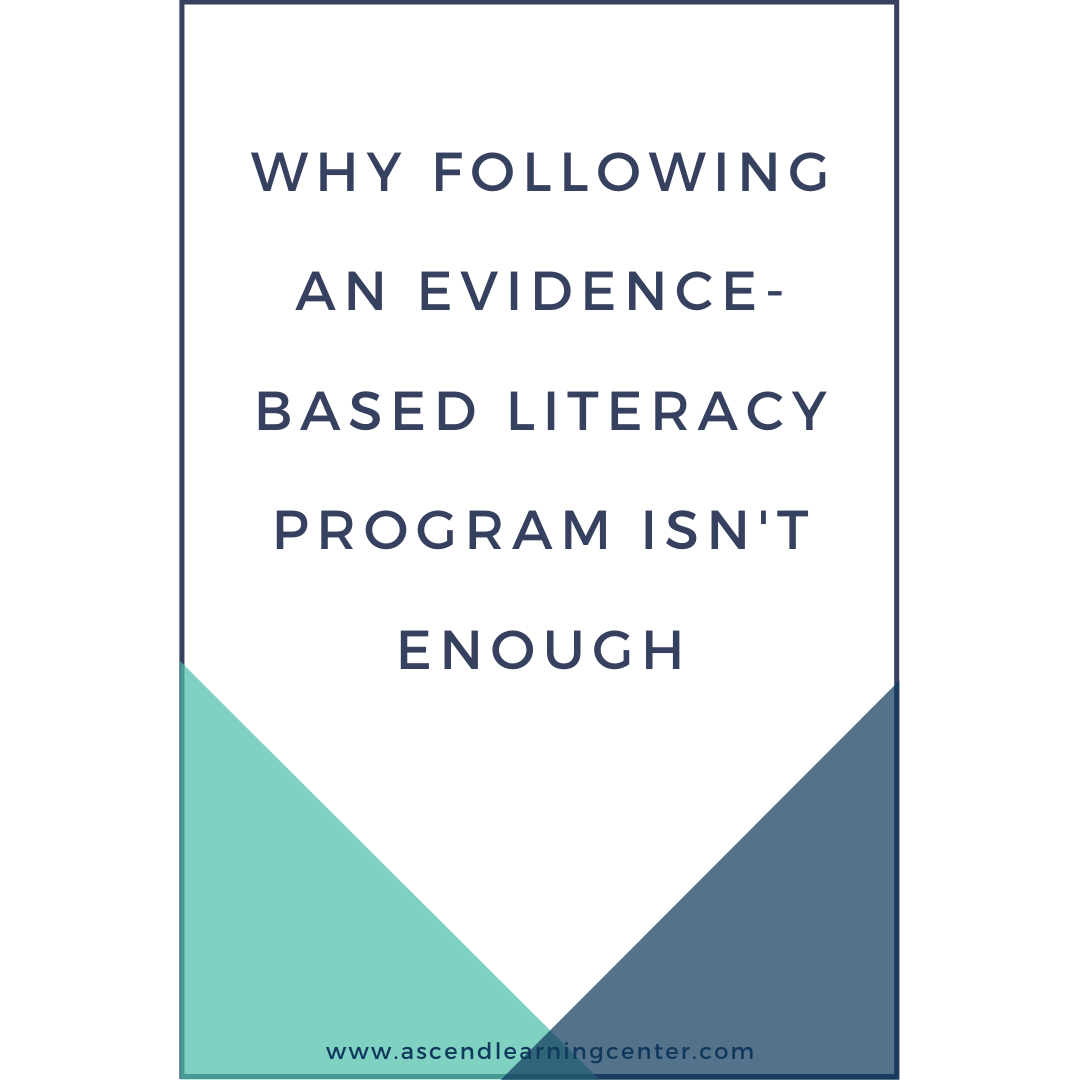Science-based literacy resources and articles
for families, educators and schools
Search by Category:
Categories
- Advocacy
- Authentic Literature
- Business
- Comprehension
- Data Tracking
- Differentiation
- Dyslexia
- Evaluation and Assessment
- Executive Functioning
- Games & Activities
- Helping My Child At Home
- How To
- IEP/504 Plan
- Lesson Planning
- Math
- Online Intervention
- Organization
- Parents
- Phonics
- Phonological Awareness
- Reading Comprehension
- Reading Fluency
- Research
- SLP
- Spelling
- Vocabulary
- Writing
Instead of saying, "The research says..."
How many times have you heard someone (or yourself) say, "but the research says [insert an excerpt from an article here]" to validate an approach or strategy?
We get this, it's entirely well-intentioned and honestly good in many ways BUT there's a better way to validate our approach and strategy in our literacy instruction.
Instead of using "the research says…" we should be using our own experiences, our own students, and our data to be driving us. Keep reading to learn more.
How to Effectively Explain Evidence-Based Literacy Instruction
We find that it is CRITICAL to share a few key pieces of information with our stakeholders. Our stakeholders are all of the people who have a vested interest in our students’ success (parents, other educators, administrators, our coworkers, etc). Click into this blog for more tips, tricks, and information.
Why Following an Evidence-Based Literacy Program Isn't Enough
If you know us well by now, you know that we are huge proponents of evidence-based (research-based) literacy intervention. It is absolutely CRITICAL that we be following evidence-based practices especially to get our struggling readers to grade level.
But here’s the issue - and it’s a big issue because nobody is really talking about it.
It’s not enough alone.
Why Are We Doing This in Literacy Intervention?!?
We know that we have a massive reading gap for so many students…
Knowing what we know - we keep questioning -
Why do we have so many struggling students when the research is clear on what evidence-based practices MUST look like to support our struggling readers?
Ultimately, there are a LOT of potential answers and factors at play when we consider this question but for us, it really comes down to 3 major categories. And…because we always teach our students to use graphic organization strategies to make sense of and organize information, we felt compelled to do the same!
7 Must Haves for Research Based Reading Intervention
Whether you are a teacher, a parent, an SLP, or an interventionist, if you’re anything like us…which you are, because you’re here, you care about providing top notch intervention or instruction for your students. However, with all the differing opinions out there in the field of education it can be difficult to know if what you’re doing is the right thing. Click through to read about our 7 Must Haves for effective, research-based reading intervention.
How to Target Your Intervention to Get the Best Results
Oh boy, targeted instruction is a big one - so buckle up because we absolutely LOVE this topic. What does it mean to provide targeted literacy instruction? Well, we are so glad you asked. As you already know by now, we are huge fans of using the literacy processing triangle basically everywhere possible. Have you seen it?
What Research Tells Us About Supporting Our Students
One of the things we hear over and over is that we need to be using evidence-based practices in intervention. We are told that using evidence-based intervention is critical to student success. I am suer that you have heard not to use resources that aren’t evidence based.
But what does that even mean?








